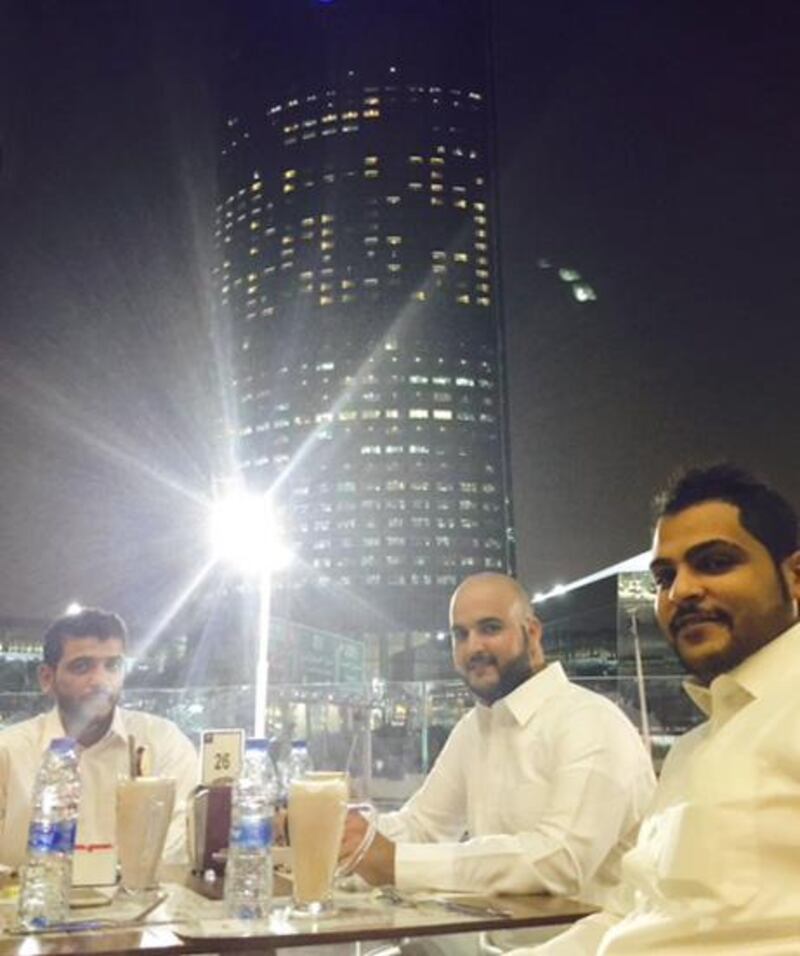RIYADH // Saudi Arabia’s youth bulge is out in force at the world’s largest coffee shop on Champions League semi-final night.
Every table in the Riyadh cafe is occupied, mostly by under-25s, who make up half the population and whose future the kingdom’s policymakers are now seeking to protect by building an economic engine that does not run on oil.
These millennials now have one of their peers at the controls in the form of Deputy Crown Prince Mohammed bin Salman.
The powerful son of King Salman last month outlined an unprecedented agenda of economic reform and social policy to end the state’s “addiction to oil”. That was followed up on Saturday with a major cabinet reshuffle which included the replacement of veteran oil minister Ali Al Naimi and the reshaping of a number of portfolios to align with the new diversification agenda of the young prince and convert his policy pledges into reality.
The reshuffle has taken place amid increasing signs of economic stress as construction projects are stopped, workers are left unpaid. Prices are rising as subsidies that hid the real cost of water, electricity and petrol, are rolled back.
But there is no sense of trepidation on the packed terrace of the Al Masaa Cafe that can seat 1,000, earning its Guinness Book of Records entry.
Its ample capacity may not be just a reflection of the quality of the coffee it serves, but of the limited choice of entertainment in the kingdom, especially for the young – an issue that is also addressed in the new Saudi Vision 2030.
The volume on the TV screens has been cranked to the maximum to drown out the blaring car horns from the gridlocked traffic below.
“As young people we don’t want an economy that stands on just oil,” says Sultan Al Otaiba, 27, a business analyst from Riyadh who is enjoying coffee with friends after work.
He says the country’s economic slowdown triggered by the decline of oil prices two years ago has not yet touched his daily life.
“We are happy because the salaries are higher than before,” he says. “Seven years ago I would earn half of my salary now. For myself and my friends I don’t see an impact.”
Down in the street among the taxis and labourer buses, the economic downturn is being felt more sharply by lower-income workers.
Samad, 35, a taxi driver from Bangladesh, lays out the numbers. He pays 170 riyals (Dh166.5) to his taxi company every day and keeps what he makes on top. The company pays for oil changes but if he has an accident and he is at fault, he pays.
His biggest expense is petrol. It costs him about 35 riyals to fill his tank now compared to 22 riyals last year.
Some 35 kilometres north of Al Masaa Cafe, near Exit 6 of the King Fahd highway, is the Banban labour camp.
Six months ago it was home to about 15,000 workers of the Saudi Binladin Group - the kingdom’s largest builder.
Now, there are only about 2,000 left, many of them owed months of wages, says Suresh, an electrician from Delhi.
A worker’s salary here is about 1,500 riyals a month, from which 300 riyals is deducted for food. Many of the men still here are surviving on their savings if they have any, or on the charity of others if they do not.
The construction sector has become one of the biggest casualties of the slowdown. The Saudi Al Watan newspaper this month reported the Binladin Group had dismissed as many as 77,000 foreign workers. Several buses belonging to the company were torched in Mecca during one recent protest.
Other contractors also face payment problems as projects are put on hold.
The cranes towering over much of the Riyadh skyline give a first impression of an industry in good health, but a closer look reveals many are not moving.
Economic diversification plans have come and gone in the kingdom over the decades, featuring prominently during oil price troughs only to disappear during the peaks.
But many economists see the Saudi Vision 2030 plan as being different – reflecting an acceptance by the Saudi leadership of a need to respond to structural change in the global oil market.
The cabinet reshuffle over the weekend underlined a determination to see the process through. It was not just a movement of ministers but of ministries – merged and moulded to deliver the goals of the plan with brutal speed.
The vision includes many ambitious targets that extend beyond the world of business into the fabric of Saudi society.
Some hold the potential at least for conflict with conservative elements in the kingdom.
But perhaps the biggest challenge will be finding enough new private sector employment for young people entering the job market in a country where 70 per cent of Saudis work for the government.
At the Al Masaa Cafe the football game is over and the youth bulge is spilling out on to the streets below – or at least half of it is.
If there are any women watching the game, they are seated in the separate family section of the cafe that runs along the side of the building.
The Saudi Vision 2030 document notes that half of the kingdom’s graduates are female and says it will “continue to develop their talents, invest in their productive capabilities and enable them to strengthen their future”.
But it does not say how, nor whether women will be allowed to drive themselves to work. Ultimately, economic necessity may answer the question.
“It’s not a boys problem, it’s a girls problem,” says John Sfakianakis, the director of economics research at the Gulf Research Centre. “The largest contributor to unemployment in Saudi Arabia is female unemployment, which is at 33 per cent. They have to become mobile. Over time things will change in Saudi Arabia.”
scronin@thenational.ae





